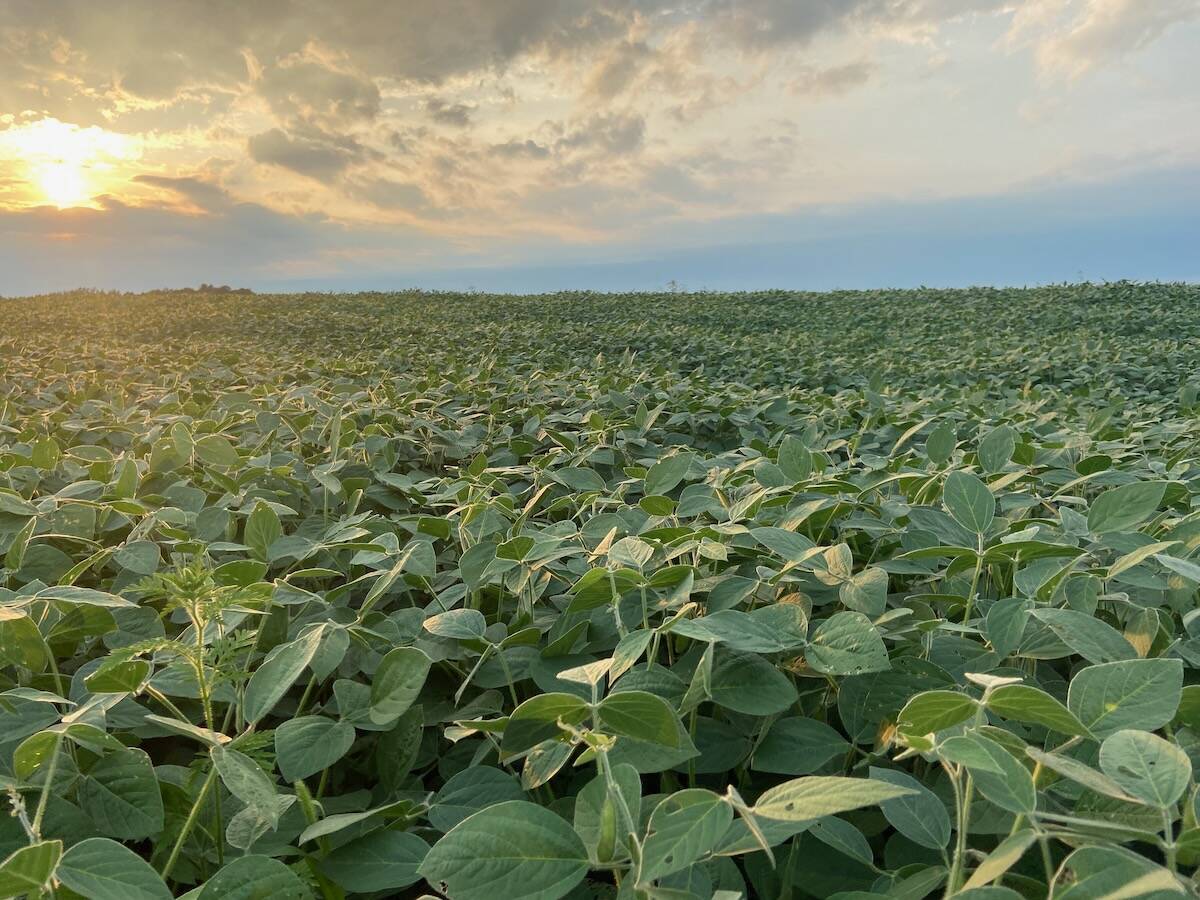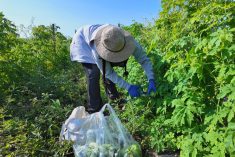Glacier FarmMedia – Environmental issues remain a hot topic for provincial agriculture ministers and dominated the recent federal, provincial and territorial agriculture ministers meeting in Fredericton, N.B.
The annual conference was held July 19-21 and was the first time the ministers had met since the launch of the $3.5-billion Sustainable Canadian Agricultural Partnership that came into effect April 1.
“My colleagues and I all agree that sustainable agriculture must take climate change into account while also ensuring farmers’ ability to make a good living from their production,” said former federal Agriculture and Agri-Food Minister Marie-Claude Bibeau, in her last major meeting before her portfolio changed to the revenue ministry.
Read Also

U.S. agricultural trade in a widening deficit, study shows
U.S. agricultural imports now exceed exports and the deficit is expected to worsen, according to a study from the University of Illinois.
“We reiterate the importance of working together and listening to producers to ensure the future of our agriculture for generations to come.”
Bibeau discussed Canada’s recent commitment to join 196 countries worldwide to half the risks associated with pesticide use.
“Reducing the risk, not the use,” Bibeau said. “I reiterate that the federal government recognizes that pest control is essential to food security and that banning pesticides used for agricultural purposes is out of the question.”
Risk management
Recent extreme weather situations across the country have raised concerns about risk management in agriculture.
Ministers noted the need for producers to have access to a full suite of business risk management programs that are timely and reliable. On this topic, ministers committed to improving those programs.
“Close collaboration has enabled us to develop a new approach. And we will soon be able to offer, on an optional basis, a new model that will simplify enrolment and speed up the processing of the AgriStability program,” said Bibeau.
She said this should make the program simpler and more responsive. Few details are available, but provinces could choose to use a cash or accrual accounting method, she said during the closing news conference.
A pilot program was successful, she added.
The ministers also discussed piloting AgriInsurance premium rebates for producers who adopt practices that are environmentally beneficial and reduce production risks. Ottawa and interested provinces will continue to evaluate the option of whole farm AgriInsurance, which also could reduce premiums, according to the meeting communique.
They “noted progress” on the announcement last year that producers with allowable net sales of $1 million or more will need an agri-environmental assessment to receive the government portion of AgriInvest. That is set to start in 2025.
“I am also announcing that the federal government will respond positively to the proposal from the maritime provinces to set up a livestock price insurance program based on the model in place in Western Canada,” Bibeau said.
International and interprovincial trade
Ministers discussed international trade and market diversification, including ongoing trade negotiations with key partners. Discussions also centred around collective efforts to position Canada as a trusted and sustainable supplier of choice to the Indo-Pacific region by leveraging Canada’s first Indo-Pacific Agriculture and Agri-Food Office, which will be in Manila, Philippines, as well as existing federal, provincial and industry resource investments in the region.
Interprovincial trade also took a prominent position at the meeting. Bibeau pointed to a pilot project to allow slaughterhouses located near a neighbouring province to slaughter and process livestock from farmers on the other side of that provincial border.
“For example, earlier this year, we opened up the trade of food products produced in Lloydminster between the Alberta and Saskatchewan portions of the city, and we are continuing on this path,” said Bibeau.
Labour issues
Farm labour issues, specifically the federal government’s National Farm Labour Strategy, was another topic of conversation.
“The seasonality of the sector and the shortage of housing bring additional challenges,” said Bibeau on the use of temporary foreign workers. “Our discussions will support the development of our National Farm Labour Strategy, which aims to develop short- and long-term solutions to labour shortages across the value chain.”
Disease management
Livestock disease management was also a hot topic.
“A priority of ours is to support breeders in preventing animal disease and also better preparing for it,” said Bibeau. “Discussions have included lessons learned from the avian flu, programs to support the sector in the event of an outbreak of African swine fever, and the foot and mouth disease vaccine bank.”
In its 2023 budget, the federal government committed to spending $57.5 million over five years (starting in 2023–24) and $5.6 million in ongoing funding to support and establish a foot and mouth disease vaccine bank for Canada and to develop response plans with provinces.
Other topics included ongoing supply chain resiliency, establishing a voluntary grocery store code of conduct and combating misinformation.
The next FPT ministers’ meeting will be held in Whitehorse, Yukon, in July 2024.














